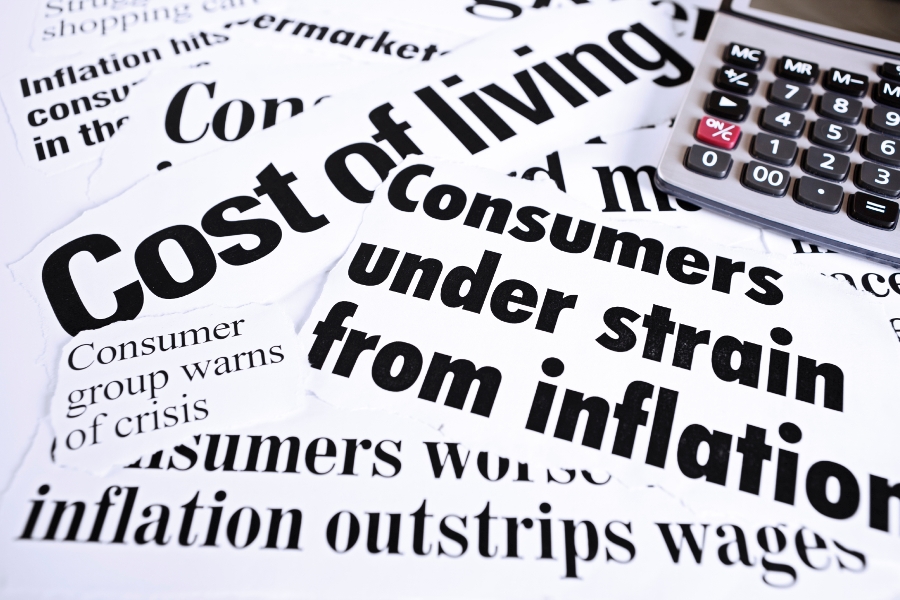

Political spin notwithstanding, U.S. consumers are feeling the pressures of inflation and adjusting lifestyles accordingly, according to the latest research from State Street Global Advisors.
The report, published Tuesday, shows that nearly half of investors surveyed say rising inflation is causing them stress and anxiety.
The majority of respondents say they are adjusting their spending behavior, most commonly cutting back on discretionary expenses.
The Inflation Impact Survey was conducted in early July and analyzed feedback from 243 adults with at least $250,000 worth of investable assets.
When asked about the direction of the U.S. economy, 58% of respondents said they believe the economy is heading toward recession within the next 12 months, and only 17% believe inflation has already peaked.
When divided by demographic groups, millennials were the most optimistic regarding inflation, with 43% believing it has peaked. That compares to 5% of Gen X-ers and Baby Boomers feeling the same way.
The inflation hovering at a 40-year high is also not dampening the bullish outlook of millennial investors, with 63% saying they are confident they can reach their financial goals. That compares to 32% of Gen X-ers and 40% of Boomers.
“As Americans try to defend themselves against the corrosive effect of inflation on their finances, we’re encouraged to see the majority are making tradeoffs in discretionary spending, rather than sacrificing contributions to their long-term savings goals,” said Brie Williams, head of Practice Management State Street Global Advisors.
“Notably, less than one-quarter of Americans were willing to curtail contributions to their retirement savings or their child’s education savings, which demonstrates a firm commitment to their long-term financial goals,” she added.
Regarding the overall economic outlook for the country over the next 12 months, 76% of Gen X-ers are concerned compared to 60% of millennials, and 65% of Boomers.
The outlook for their personal financial situation wasn’t much better: 56% of Gen X-ers are worried about maintaining their current standard of living, compared to 46% of millennials and 43% of Boomers. Being able to afford to retire when planned is another worry, with 59% of Gen-X expressing concern over this, compared to 41% of millennials and 31% of Boomers. Being able to afford expenses in retirement was also a bigger worry for Gen X, with 56% expressing concern, versus 41% of millennials and 44% of Boomers.

Relationships are key to our business but advisors are often slow to engage in specific activities designed to foster them.

Whichever path you go down, act now while you're still in control.

Pro-bitcoin professionals, however, say the cryptocurrency has ushered in change.

“LPL has evolved significantly over the last decade and still wants to scale up,” says one industry executive.

Survey findings from the Nationwide Retirement Institute offers pearls of planning wisdom from 60- to 65-year-olds, as well as insights into concerns.
Streamline your outreach with Aidentified's AI-driven solutions
This season’s market volatility: Positioning for rate relief, income growth and the AI rebound
